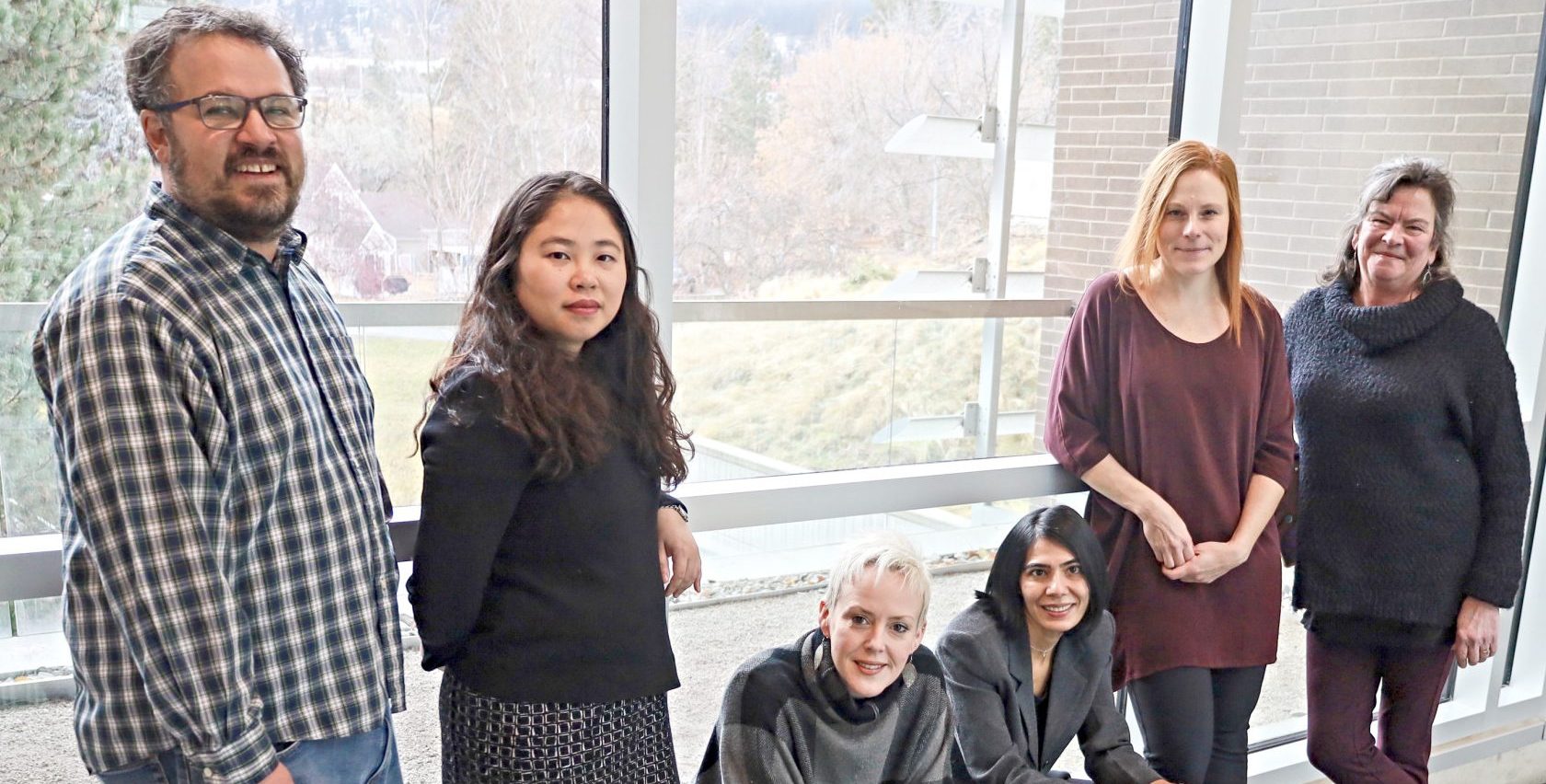Post-secondary institutions are no strangers to data analysis. But at Thompson Rivers University (TRU), researchers are going beyond numbers to better understand students’ university experience to drive meaningful change.
“For more than a decade, Thompson Rivers University — like many post-secondary institutions in North America — has been tracking intercultural learning and engagement as part of institutional strategic planning efforts,” said Dr. Kyra Garson, intercultural co-ordinator in the Faculty of Student Development.

From left: Brad Harasymchuk, Yujie Jiang, Amie McLean, Anila Virani, Alana Hoare and Kyra Garson
TRU recognizes that intercultural learning is an important aspect of the student experience — something that is emphasized by the Truth and Reconciliation Commission’s Calls to Action for post-secondary institutions to build student capacity for intercultural understanding, empathy and mutual respect.
To get a deeper understanding of students’ intercultural experiences that can be used to influence the way students are taught and engaged, Garson and her team are broadening their research approach.
In the past, TRU’s intercultural data has included perception-based ratings collected from surveys, course enrolments and completion rates, and event participation related to interculturalization, internationalization and Indigenization.
Data collected has been primarily numerical or quantitative in nature. Until now.
Beyond numbers
“The research literature and BC Human Rights Commission have identified that quantitative metrics fail to capture rich, nuanced information about people’ experiences of inclusion and belonging,” said Dr. Alana Hoare, assistant teaching professor in the Faculty of Education and Social Work.
“TRU faculty researchers recognized the need to gather students’ stories of their lived experiences to gain a deeper understanding of the cognitive, affective and behavioural domains of intercultural learning,” she continued.
“Early efforts to better understand students’ experiences of diversity, inclusion and intercultural learning started with a small pilot study with 12 student participants in 2021, which included open ended responses on their experiences of intercultural learning and engagement at TRU.”
Earlier this year, the TRU research team was awarded a BCcampus Research Fellowship to broaden the study to explore students’ experiences of diversity, inclusion and intercultural learning
The research team consists of Garson and Hoare along with Dr. Brad Harasymchuk, assistant teaching professor in education, Dr. Amie McLean, intercultural co-ordinator in student development, Dr. Anila Virani, assistant professor in nursing, and Yujie Jiang, recent master’s graduate in education.
Garson said the research fellowship allowed the team to expand and adapt the research methodology into a more fulsome mixed-methods study. The project involves an analysis of student responses to the National Survey of Student Engagement (NSSE) and the Fall Student Census, along with students’ stories reflecting their experiences of diversity, inclusion and intercultural understanding.
Both on-campus and Open Learning students are invited to participate in the study.
So far, over 400 students from across TRU faculties and schools have responded to open-ended questions aimed at understanding their unique experiences of diversity, inclusion and intercultural learning. That’s expected to be closer to 500 participants by the end of April.
Data for a difference
“Ultimately, the research team aims to elevate how post-secondary institutions have historically used data for quality assurance and accountability purposes, to expand upon these efforts through more rigorous and culturally relevant research practices and to inform actionable change,” said Hoare.
Garson added that the study is designed to better understand students’ experiences of diversity, inclusion and intercultural learning through qualitative analysis. The data will enable a deeper understanding of students’ perceptions, including how and where they are engaged in intercultural learning, the impact of their experiences, and what they perceive to be barriers to intercultural learning in post-secondary education.
The team hopes a more nuanced understanding of students’ experiences and perceived barriers leads to recommendations for educational programming and inclusive learning environments with the aim of enhancing engagement and outcomes for all students in the province,” she said.
Using data to make a difference can support TRU’s ability to meaningfully respond to repeated calls related to intercultural development presented in the TRC’s Calls to Action.

